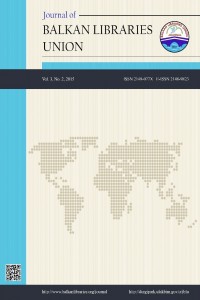The International Seminar on Albanian Language, Literature and Culture, Faculty of Philology of the University of Prishtina Edited by Bardh Rugova, et al.
Abstract
Ideology is less a matter of the inherent linguistic properties of a pronouncement than a question of who is saying what to whom for what purposes (Eagleton, 1991, p.9). 'To study ideology', writes John B. Thompson, ' ... is to study the ways in which meaning (or signification) serves to sustain relations of domination.’. To try to compress this wealth of meaning into a single comprehensive definition. This would be unhelpful even if it were possible. The word 'ideology', one might say, is a text, woven of a whole tissue of different conceptual strands; it is traced through by divergent histories and it is probably more important to assess what is valuable or can be discarded in each of these lineages than to merge them forcibly into some Grand Global Theory
Keywords
Details
| Primary Language | English |
|---|---|
| Journal Section | Letter to Editor |
| Authors | |
| Publication Date | November 30, 2015 |
| Published in Issue | Year 2015 Volume: 3 Issue: 2 |

